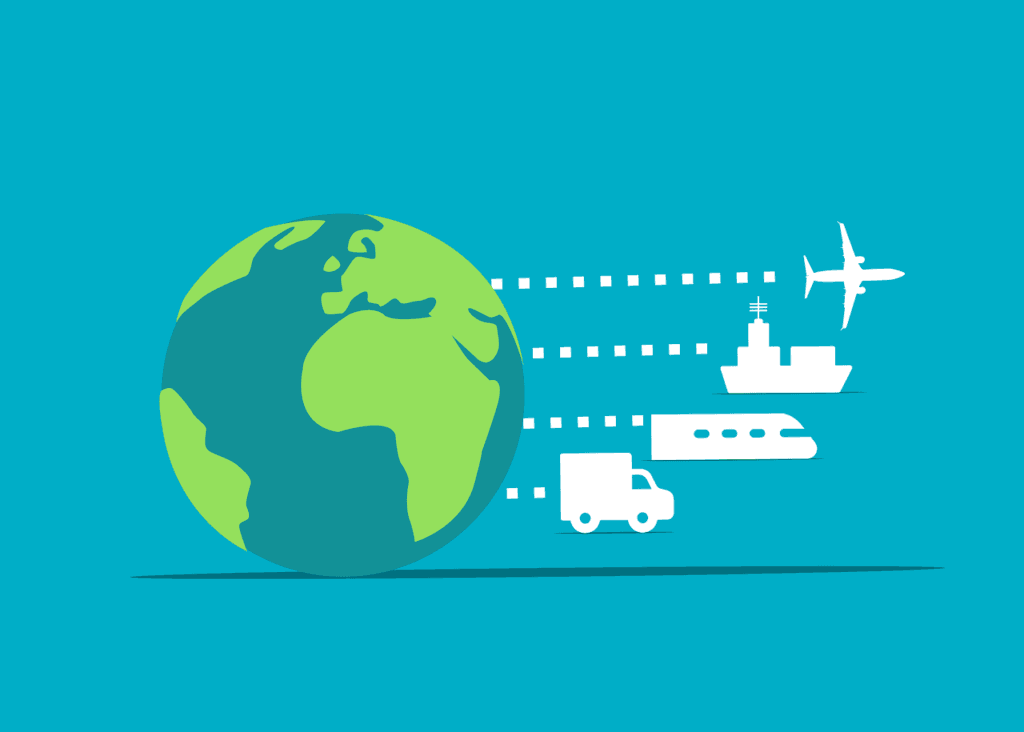This Article has been revised, edited and added to, by Poulomi Chakraborty.
- Understanding Geo-Localization: A Fundamental Asset
- How Geo-Localization Supports Sustainability
- Leveraging Geo-Localization for Market Entry Decisions
- Customizing Product Offerings with Local Data
- Optimizing Operational Efficiency
- Enhancing Customer Engagement
- Implementing Dynamic Pricing Strategies
- Navigating Regulatory Landscapes
- Forecasting and Future Planning
- Comparing Traditional and Geo-Localized Supply Chains
- Strategic Implementation of Geo-Localization
- Strategy 1: Real-Time Data Integration
- Strategy 2: Customized Marketing Campaigns
- Strategy 3: Sustainable Resource Management
- Strategy 4: Enhanced Delivery and Distribution Networks
- Fostering Innovation with Geo-Data Insights
- Gaining Competitive Advantage Through Market Segmentation
- Enhancing Customer Engagement Through Localization
- Streamlining Operations with Geo-Optimized Resource Allocation
- Enhancing Real-Time Decision Making
- Implementing Geo-Localization in Risk Management
- Navigating Challenges in Geo-Localization Implementation
- Future Trends in Geo-Localization and Their Impact on Sustainable Practices
- Trend 1: Integration with Internet of Things (IoT)
- Trend 2: Advanced Predictive Analytics
- Trend 3: Augmented Reality and Virtual Reality Integration
- Trend 4: Increased Localization for Global Operations
- Trend 5: Enhanced Geopolitical Risk Management
- Leveraging Geo-Localization for Enhanced Environmental Monitoring
- Exploiting Geo-Localization for Energy Optimization
- Driving Circular Economy Models
- Enhancing Supply Chain Transparency
- Pioneering Geo-Spatial Data in Market Analysis
- Implementing Geo-Localization in Disaster Response
- The Integral Role of Geo-Localization in Shaping a Sustainable Future
- Conclusion
Welcome to the world of geo-localization, a vital tool in shaping sustainable markets on a global scale. In this in-depth exploration, we’ll delve into how businesses around the world are harnessing the power of location-based strategies to drive environmental sustainability and boost economic viability. Through actionable insights and practical examples, we aim to empower you with the knowledge to apply these techniques within your own context.
Understanding Geo-Localization: A Fundamental Asset

Geo-localization involves the use of GPS and other data to pinpoint geographic locations to tailor business practices to local environments, cultures, and regulations. This technology isn’t just about improving operational efficiency; it’s also a key player in creating sustainable practices that respect local nuances and contribute to global ecological goals.
How Geo-Localization Supports Sustainability
The connection between geo-localization and sustainability might not be immediately apparent, but once you delve into the logistics and operations of businesses, it’s clear how profound this impact can be. For instance, consider the supply chain operations of a multinational company.
By implementing geo-localization techniques, the company can optimize routes for shipping products, significantly reducing fuel consumption and carbon emissions. This is just the tip of the iceberg when it comes to the benefits of geo-localization in enhancing sustainability.
Leveraging Geo-Localization for Market Entry Decisions
For startups, the decision of where to launch or expand is crucial. Geo-localization offers detailed insights into demographic trends, consumer behavior, and competitive landscapes. This data can help startup founders make informed decisions about which markets are ripe for entry and how to position their products or services.
For instance, a startup can use geo-localization to identify a region with a high concentration of potential customers and minimal competition, optimizing their market entry strategy for maximum impact.
Customizing Product Offerings with Local Data
Startups often face the challenge of adapting their products to suit diverse markets. Geo-localization provides the ability to analyze local preferences and cultural nuances, allowing startups to tailor their offerings to meet specific local demands.
This approach not only increases the likelihood of product acceptance but also enhances customer satisfaction and loyalty. For example, a food delivery startup could use geo-localization to discover regional cuisine preferences and adjust its menu offerings accordingly, thereby ensuring that it meets the unique tastes of each locality.
Optimizing Operational Efficiency
Efficiency in operations can make or break a startup, especially when resources are limited. Geo-localization can streamline various operational aspects such as supply chain logistics, delivery routes, and inventory management.
By analyzing geographical data, startups can plan the most efficient routes, predict the best locations for warehouses, and ensure that inventory levels are kept optimal to meet local demands without incurring excess costs or waste.
Enhancing Customer Engagement
Geo-localization enables startups to engage with their customers more effectively by providing location-specific services and communications. This could involve sending targeted promotions when a customer is near a particular store or offering localized content that resonates with the cultural context of the customer.
Such personalized engagement not only improves user experience but also builds a deeper connection between the brand and its customers.
Implementing Dynamic Pricing Strategies
Startups can use geo-localization to implement dynamic pricing strategies that reflect the economic conditions of different regions. This approach allows startups to maximize their revenue in high-demand areas while remaining competitive in more price-sensitive markets.
By adjusting prices based on local purchasing power and competition, startups can optimize their revenue streams without alienating potential customers.
Navigating Regulatory Landscapes
Understanding and complying with local regulations is vital for startups, especially those operating in multiple regions. Geo-localization can aid in navigating these complex regulatory landscapes by providing data on local laws and standards.
This is particularly important for startups in sectors such as healthcare, financial services, and telecommunications, where compliance is critical to business operations.
Forecasting and Future Planning
Finally, geo-localization can play a significant role in the strategic planning and forecasting efforts of startups. By providing data on emerging trends and potential market shifts, geo-localization tools can help startups anticipate changes in consumer behavior and market conditions, allowing them to adjust their strategies proactively.
This forward-looking approach is essential for maintaining competitiveness and sustainability in a rapidly changing global market.
By integrating geo-localization into their strategies from the outset, startups not only enhance their operational efficiencies but also increase their chances of succeeding in the global marketplace. The ability to adapt quickly and understand local dynamics can set a startup on a path to long-term growth and success.
Comparing Traditional and Geo-Localized Supply Chains

Let’s examine how traditional supply chains differ from those enhanced by geo-localization techniques, focusing on their impact on sustainability.
Traditional Supply Chains
Traditional supply chains often operate on a one-size-fits-all model, where the same methods are applied regardless of geographical and cultural differences across locations. This approach can lead to inefficiencies such as:
- Overproduction and waste: Lack of local market insights can cause businesses to produce more than what is needed, leading to excess inventory that often results in waste.
- Increased carbon footprint: Without route optimization, transportation methods may take longer routes than necessary, resulting in higher fuel consumption and increased greenhouse gas emissions.
- Resource depletion: Inefficient use of resources, like water and energy, in areas where they are scarce, can exacerbate local environmental issues.
Geo-Localized Supply Chains
In contrast, geo-localized supply chains leverage real-time data and sophisticated analytics to adapt their operations to local conditions and needs. Key benefits include:
- Enhanced efficiency: With real-time data, companies can respond more quickly to changes in demand and supply conditions, reducing overproduction and minimizing waste.
- Reduced environmental impact: Route optimization allows for shorter and less energy-intensive transportation options, which lowers the carbon footprint of shipping goods.
- Resource conservation: By understanding local resource availability, businesses can adjust their practices to ensure more sustainable consumption of scarce resources, like water and energy.
Enhanced Responsiveness to Market Dynamics
Geo-localized supply chains excel in their ability to adapt quickly to changing market conditions. This adaptability is crucial for startups that must be agile to survive and thrive in competitive environments.
By leveraging real-time data on consumer behavior and market trends specific to each locale, startups can make swift decisions about product distribution and marketing strategies, ensuring that they meet the actual demand rather than following a predetermined plan that may not align with current market needs.
Strategic Inventory Management
A major challenge for any startup is managing inventory in a way that balances supply and demand without tying up too much capital in stock. Geo-localization provides startups with detailed insights into regional sales patterns, enabling more precise inventory control.
This capability allows startups to avoid overstocking or stockouts, both of which can be costly. Efficient inventory management also supports better cash flow—a critical element for the survival and growth of any new business.
Cost Reduction Through Optimized Logistics
Logistics can be one of the largest expenses for companies, especially for startups that do not yet have the scale to negotiate better rates. Geo-localization helps reduce these costs through route optimization and by identifying the most efficient modes of transport based on time, cost, and carbon footprint considerations.
Startups can significantly decrease their delivery times and enhance customer satisfaction by ensuring that products are delivered in the most efficient manner possible, taking into account traffic patterns, weather conditions, and other local factors.
Improved Supplier Selection and Management
Choosing the right suppliers is another critical decision area for startups. Geo-localization tools can aid in selecting suppliers based on proximity, cost-effectiveness, and reliability, thus minimizing risks and costs associated with long-distance suppliers.
Additionally, maintaining a geo-localized view of the supply chain helps startups monitor and manage supplier performance more effectively, ensuring that they can respond quickly to any issues that might arise.
Building a Sustainable Brand Image
Today’s consumers are increasingly conscious of the environmental impact of their purchases. Startups that utilize geo-localization to optimize their supply chains often reduce their overall carbon footprint by minimizing unnecessary transportation and warehousing. This not only leads to cost savings but also strengthens the brand’s image as environmentally responsible, which can be a significant competitive advantage.
Facilitating International Expansion
For startups looking to expand internationally, understanding the complexities of global supply chains is essential. Geo-localization can provide insights into which markets are most accessible and what logistical challenges may need to be overcome.
This strategic use of geo-localization can simplify international expansion by providing startups with the tools needed to assess and enter new markets effectively and sustainably.
By integrating geo-localization into their supply chain strategies, startups gain a nuanced understanding of how to manage and optimize their operations globally. This strategic approach not only enhances efficiency and reduces costs but also positions startups to capitalize on new opportunities quickly and sustainably, thus fostering a robust foundation for growth and scalability in the competitive global market.
Strategic Implementation of Geo-Localization

Moving deeper into the realm of geo-localization, let’s explore specific strategies businesses can adopt to effectively integrate this technology into their operations. We will also highlight real-world examples that demonstrate the practical benefits of these strategies.
Strategy 1: Real-Time Data Integration
One of the most powerful aspects of geo-localization is its ability to provide real-time data, which can be crucial for dynamic decision-making.
Example: Real-Time Inventory Management
Consider a global retail company that uses geo-localization to manage inventory across its various store locations. By analyzing data on local sales trends and inventory levels in real time, the company can optimize its stock to ensure that each location has just enough inventory to meet demand without overstocking. This approach not only reduces waste but also improves customer satisfaction by minimizing stockouts.
Strategy 2: Customized Marketing Campaigns
Geo-localization enables businesses to tailor their marketing efforts to fit the cultural and economic context of each region.
Example: Localized Advertising
A multinational beverage company uses geo-localization to adjust its advertising campaigns to suit local tastes and preferences in different countries. In regions where health-conscious trends are more prominent, the company emphasizes low-calorie options in its advertisements. This targeted approach not only boosts sales but also enhances the company’s image as a brand that respects local preferences.
Strategy 3: Sustainable Resource Management
Geo-localization can play a significant role in sustainable resource management by helping companies understand and adapt to local environmental conditions.
Example: Water Resource Optimization
A manufacturing company operating in multiple countries uses geo-localization to assess local water availability and risk. In areas prone to drought, the company implements water-saving technologies and adjusts its production processes to minimize water use. This not only conserves local water resources but also reduces the company’s operational risks related to water scarcity.
Strategy 4: Enhanced Delivery and Distribution Networks
Optimizing delivery routes and distribution networks through geo-localization can significantly reduce a company’s carbon footprint and improve efficiency.
Example: Optimized Delivery Routes
A logistics company employs advanced geo-localization tools to optimize delivery routes across its global network. By analyzing traffic patterns, weather conditions, and road quality, the company can determine the fastest and most fuel-efficient routes. This reduces fuel consumption, lowers emissions, and decreases delivery times, providing a competitive edge in customer service.
Fostering Innovation with Geo-Data Insights
Startups, known for their innovative approaches, can use geo-localization to drive innovation in product development and service delivery. By analyzing geo-specific data, startups can identify unmet needs and gaps in the market, which can inspire new products or services tailored to local preferences or conditions.
For example, a startup could use weather and terrain data to develop advanced agricultural products suited for specific climates, drastically improving yields for local farmers.
Gaining Competitive Advantage Through Market Segmentation
Geo-localization enables startups to perform detailed market segmentation by geographical criteria, allowing them to precisely target different demographics based on regional preferences and purchasing power.
This deep level of market understanding enables startups to craft highly targeted marketing campaigns, offer region-specific promotions, and develop localized products, which can significantly enhance their competitive positioning.
Enhancing Customer Engagement Through Localization
Localizing the customer experience is another strategic use of geo-localization. Startups can use this technology to customize user interfaces, language options, and content to match the local language and cultural norms, making their applications or websites more accessible and user-friendly.
Moreover, geo-targeted notifications and offers can make interactions more relevant and engaging, increasing customer loyalty and satisfaction.
Streamlining Operations with Geo-Optimized Resource Allocation
Effective resource allocation is critical for startup success, and geo-localization can optimize this process. By analyzing geographic data, startups can identify the best locations for their facilities, from warehouses to retail stores, ensuring they are strategically placed to serve target markets effectively.
Additionally, geo-localization can help manage field operations more efficiently, whether it’s deploying maintenance teams more swiftly or optimizing a door-to-door sales strategy.
Enhancing Real-Time Decision Making
In today’s fast-paced market environments, the ability to make quick, informed decisions is crucial. Geo-localization provides startups with real-time data, enabling them to respond swiftly to market changes or logistical challenges.
For instance, if a delivery route is suddenly disrupted by traffic or an accident, a startup can immediately reroute deliveries to maintain service levels and customer satisfaction.
Implementing Geo-Localization in Risk Management
Startups can also use geo-localization as a tool for risk management. By understanding the geographic distribution of their assets, customers, and suppliers, startups can better assess and mitigate risks associated with natural disasters, political instability, or economic fluctuations.
This geographical awareness can be crucial in developing robust contingency plans that ensure business continuity in the face of disruptions.

Related: Check out our free SEO suite

Navigating Challenges in Geo-Localization Implementation
While the advantages of geo-localization are clear, its implementation comes with its own set of challenges. Here, we will explore some of these obstacles and discuss practical solutions to help businesses successfully leverage geo-localization for sustainable market practices.
Challenge 1: Data Privacy and Security Concerns
The collection and use of geo-location data can raise significant privacy and security concerns, which can be a major roadblock for businesses.
Overcoming Data Privacy and Security Issues
Solution: Implement robust data protection measures. Businesses must ensure they are compliant with local and international data protection regulations, such as GDPR in Europe or CCPA in California. Utilizing encryption, anonymization of data, and secure data storage practices can help mitigate privacy concerns and build trust with consumers.
Example: Secure Geo-Localization in Retail
A retail chain implements advanced encryption and anonymization techniques to protect the location data of its customers as it uses this information to optimize local stock levels. By doing so, the company not only complies with stringent data protection laws but also assures its customers that their information is secure, enhancing brand loyalty.
Challenge 2: High Implementation Costs
The costs associated with integrating geo-localization technologies can be prohibitive, especially for small to medium-sized enterprises (SMEs).
Overcoming High Costs
Solution: Start small and scale gradually. SMEs can begin by implementing geo-localization in critical areas of their operation where the ROI will be most significant. As the business grows and the benefits become apparent, further investment in this technology can be justified and expanded.
Example: Cost-Effective Geo-Localization in Logistics
A small logistics company starts by using geo-localization to optimize its most costly and frequently used routes. As the company realizes fuel savings and improved delivery times, it reinvests the savings into expanding its geo-localization capabilities across its network.
Challenge 3: Technological Integration
Integrating geo-localization with existing systems can be challenging, particularly for businesses with outdated technology infrastructures.
Overcoming Technological Barriers
Solution: Leverage partnerships and modular technologies. Businesses can partner with tech companies specializing in geo-localization to tailor solutions that integrate seamlessly with their existing systems. Modular solutions that can be customized and scaled can also alleviate integration issues.
Example: Integration in Manufacturing
A manufacturing firm partners with a tech provider to implement a geo-localization system that works in tandem with its existing supply chain management software. This integration allows for smoother transition and minimal disruption to operations.
Challenge 4: Cultural and Regulatory Hurdles
Businesses operating in multiple countries must navigate a complex landscape of cultural and regulatory variations that can complicate the use of geo-localization.
Overcoming Cultural and Regulatory Hurdles
Solution: Conduct thorough regional assessments and engage local experts. Understanding local laws and cultural attitudes towards technology like geo-localization can guide strategy adjustments and compliance measures.
Example: Global Retail Adaptations
A global retailer conducts extensive research into the cultural dynamics and regulatory frameworks of each new market it enters. This research informs its geo-localization strategies, ensuring they are culturally sensitive and legally compliant, which enhances local market penetration and acceptance.
Navigating these challenges effectively requires a combination of strategic planning, technological savvy, and a deep understanding of local markets. By addressing these hurdles head-on, businesses can fully capitalize on the benefits of geo-localization and drive forward their sustainability agendas.
Future Trends in Geo-Localization and Their Impact on Sustainable Practices

As we look to the future, geo-localization is set to play an increasingly pivotal role in shaping sustainable business practices across the globe. Let’s explore some of the emerging trends in this technology and how they could transform industries by enhancing sustainability.
Trend 1: Integration with Internet of Things (IoT)
Geo-localization is merging with the Internet of Things (IoT) to create interconnected systems that can automate and optimize numerous aspects of business operations, from logistics to energy management.
Future Scenario: Smart Cities and Transportation
Imagine urban environments where public transportation systems are fully integrated with geo-localization technologies and IoT. Buses and trains can dynamically adjust their routes and schedules based on real-time traffic data and passenger needs, significantly reducing congestion and lowering emissions. Such smart transportation systems could revolutionize urban planning and greatly enhance the sustainability of cities.
Trend 2: Advanced Predictive Analytics
With the evolution of machine learning and big data technologies, predictive analytics is becoming a crucial part of geo-localization, offering unprecedented insights into consumer behavior and environmental impact.
Future Scenario: Predictive Supply Chains
Companies will increasingly use geo-localization coupled with predictive analytics to anticipate market demands and adjust their supply chains accordingly. This could lead to near-perfect levels of stock, optimized delivery routes, and dramatically reduced waste and energy consumption, making supply chains far more sustainable.
Trend 3: Augmented Reality and Virtual Reality Integration
Augmented Reality (AR) and Virtual Reality (VR) are set to merge with geo-localization to enhance user experiences in both the physical and virtual worlds, providing innovative ways to engage with consumers and optimize operations.
Future Scenario: AR-Enhanced Ecotourism
Tourism companies might use AR integrated with geo-localization to offer immersive experiences that educate tourists about local ecosystems and cultures without harming them. By blending virtual elements with real-world settings, these tools can enhance learning and appreciation for sustainability, potentially changing the way people travel and interact with the environment.
Trend 4: Increased Localization for Global Operations
As businesses continue to expand globally, there is a growing need to localize operations not only to optimize performance but also to comply with local regulations and meet community standards, all of which are pivotal for sustainable development.
Future Scenario: Localized Manufacturing Hubs
Companies might develop localized manufacturing hubs that use geo-localization technologies to adapt their operations and products to local needs and resources. This decentralization of manufacturing efforts can reduce the carbon footprint associated with shipping and provide more jobs in local economies, thereby supporting both environmental and social aspects of sustainability.
Trend 5: Enhanced Geopolitical Risk Management
Geo-localization can play a significant role in managing geopolitical risks by providing businesses with tools to navigate complex political landscapes and adjust operations in real-time.
Future Scenario: Dynamic Risk Assessment Tools
Imagine a scenario where multinational corporations use geo-localization to monitor geopolitical developments and automatically adjust their operations in real-time. This could include rerouting shipments away from conflict zones or shifting production to more stable regions, ensuring business continuity while minimizing risk.
Leveraging Geo-Localization for Enhanced Environmental Monitoring
Startups can harness geo-localization to play a pivotal role in environmental monitoring and sustainability efforts. By embedding sensors and leveraging geo-data, startups can help track environmental changes and pollution levels in real time, providing valuable data that can be used to inform policy making, corporate social responsibility (CSR) activities, and community initiatives.
This approach not only contributes to environmental preservation but also builds a positive brand image, demonstrating a commitment to sustainability that can attract eco-conscious consumers and investors.
Exploiting Geo-Localization for Energy Optimization
As energy efficiency becomes a critical concern, geo-localization can provide startups with the tools to optimize energy usage in various aspects of their operations. For example, by integrating geo-localization with smart building technologies, startups can manage energy consumption based on occupancy and usage patterns, thereby reducing waste and lowering operational costs.
Additionally, geo-localization can aid in the optimal placement and operation of renewable energy sources such as solar panels and wind turbines, aligning energy production with geographic areas where conditions are most favorable.
Driving Circular Economy Models
The concept of a circular economy, where resources are reused and recycled continuously, aligns perfectly with the capabilities of geo-localization. Startups can utilize this technology to facilitate the logistics of circular practices such as the collection, recycling, and redistribution of products.
Geo-localization can help identify the most efficient routes for collection and redistribution networks, as well as pinpoint locations where recycled materials are needed most, ensuring that resources are allocated efficiently and sustainably.
Enhancing Supply Chain Transparency
Transparency in supply chains is increasingly demanded by consumers, regulators, and investors. Geo-localization can provide startups with the means to offer unprecedented transparency by tracking the movement of goods from source to store.
This tracking ensures that ethical practices are followed throughout the supply chain and allows consumers to see the journey of the products they purchase. Such transparency not only enhances consumer trust and brand loyalty but also encourages all stakeholders in the supply chain to adhere to sustainable practices.
Pioneering Geo-Spatial Data in Market Analysis
Geo-spatial analytics can revolutionize market analysis by providing startups with deep insights into geographical and demographic trends. Startups can analyze patterns of population growth, urban development, and economic activity to identify emerging markets and design products and services that meet the specific needs of these areas. This targeted approach reduces the risk of market entry and maximizes the potential for success in new regions.
Implementing Geo-Localization in Disaster Response
Lastly, geo-localization can greatly enhance a startup’s ability to respond to natural disasters or crises. By understanding the geographic distribution of their assets and customers, startups can plan more effective response strategies and ensure the rapid deployment of resources where they are needed most.
This capability not only mitigates the impact of disasters on the business but also positions the startup as a reliable and socially responsible entity, further enhancing its reputation and customer loyalty.
These trends suggest a future where geo-localization not only makes businesses more efficient but also significantly contributes to their ability to operate sustainably. By harnessing these advanced technologies, companies can look forward to not only thriving economically but also playing a vital part in fostering a sustainable planet.
The Integral Role of Geo-Localization in Shaping a Sustainable Future

Throughout this exploration, we’ve delved deeply into the transformative power of geo-localization in fostering sustainable global markets. From optimizing supply chains and customizing marketing strategies to managing resources more sustainably and navigating the challenges of implementation, geo-localization stands as a pivotal tool in the arsenal of modern businesses aiming for sustainability.
Key Takeaways:
- Enhanced Operational Efficiency: Geo-localization allows businesses to optimize their operations, reducing waste and minimizing environmental impact. Through real-time data integration, businesses can dynamically adjust to changing conditions and demands.
- Customized Local Solutions: By understanding local cultural and regulatory environments, businesses can tailor their practices effectively, ensuring greater market penetration and acceptance while promoting sustainability.
- Strategic Resource Management: The use of geo-localization in managing natural resources like water and energy helps in conserving scarce resources, particularly in regions where they are most needed.
- Innovative Technologies: Emerging trends, such as the integration of geo-localization with IoT, AR, and VR, and its role in predictive analytics, highlight the future direction of this technology in creating even more efficient and responsive business models.
- Overcoming Implementation Challenges: Addressing concerns related to data privacy, integration costs, technological adaptation, and cultural sensitivities are essential for successful implementation. Businesses must approach these challenges strategically, employing robust security measures, starting small, and scaling up intelligently.
Conclusion
Geo-localization is not just a technological tool but a strategic asset that can significantly influence the sustainability of business practices globally. As businesses continue to navigate the complexities of global markets, the integration of geo-localization techniques will be crucial for achieving not only economic success but also for contributing positively to the environmental and social fabric of the communities they serve.
In conclusion, as we look to a future where sustainability is increasingly paramount, the strategic application of geo-localization technologies offers a promising pathway to achieving these goals. Businesses that embrace these practices stand to gain a competitive advantage, enhancing their operational efficiencies while playing a crucial role in building a sustainable future for all.
Read Next:
- Startup SEO Budget Allocation: Balancing Paid and Organic Strategies
- Cost-Effective Startup SEO: Maximizing ROI with Limited Budgets
- The Link Between SEO Budget and Long-Term ROI for Startups
- Factors Influencing Startup SEO Budget Allocation
- Allocating Resources: Creating a Comprehensive SEO Budget Plan



















Comments are closed.